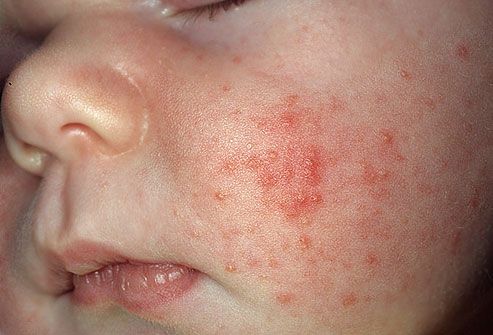 Well in fact babies can suffer from acne due to the hormones of the mother during pregnancy and also naturally becoming clogged pores in the womb, however this condition should not be confused with milia; a condition in which dead skin is trapped on baby’s skin and doesn’t slough off causing little white bumps.
Well in fact babies can suffer from acne due to the hormones of the mother during pregnancy and also naturally becoming clogged pores in the womb, however this condition should not be confused with milia; a condition in which dead skin is trapped on baby’s skin and doesn’t slough off causing little white bumps.This is a natural occurrence and can be easily mistaken for acne. But if you’re baby is experiencing reddish spots or pimples, they should be treated, naturally. Baby acne may appear to be painful for your child but doctors have said that it hardly has an effect on them physically and does not cause pain to the baby with it.
Any traditional means as a form of an acne treatment for your baby like a medicated cream or prescription is obviously out of the question.
A few quick and easy tips for treating baby acne naturally:
- Wash your babies skin with warm water, a washcloth with a tiny bit of Dr. Bronner’s natural baby soap and gently massage.
- There are even some reports of putting breast milk on the affected skin to relieve it from the acne, however if it were your hormones in the first place and you too suffer from post pregnancy acne then I would not recommend this be given a try.
- Instead a dab of coconut oil rubbed gently over the affected skin will help too. In fact this is an excellent moisturizer for after their bath too and they will smell well, edible.
However this is called cannibalism and is in fact frowned upon in most societies – Willy Wonka! - Patience.
Drs have said that there is no harm to the baby through a little acne, and that it will in a couple of weeks go away naturally so it best to take simple measure and not freak out about it. - Make sure your buying the right perfume free detergents as baby’s skin is very sensitive to this and other perfumes.
If you as a mother struggle with acne then you should seek out great home acne remedies as your acne will be a little tougher than a dab of coconut oil to get rid of.
Also because you are most likely breast feeding it would be best to not use medications or over the counter topical either, but instead use natural skincare remedies.
Article Source: Air Force Mike

